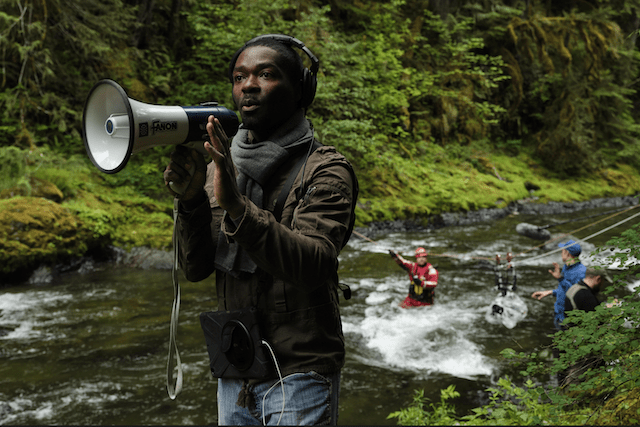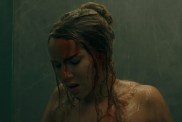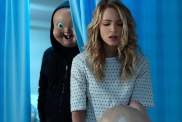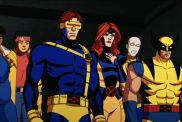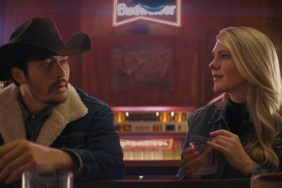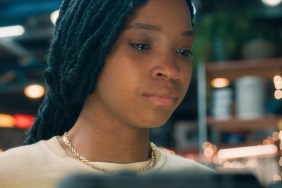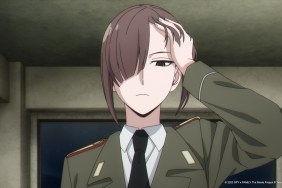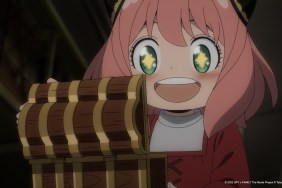The Water Man, which is out in theaters on May 7, is acclaimed actor David Oyelowo’s first feature film as a director. Oyelowo starred in the family adventure drama alongside Rosario Dawson, Lonnie Chavis, and Amiah Miller.
The film follows a boy named Gunner (Chavis), who sets out on a quest to save his ill mother (Dawson) by searching for a mythic figure called the Water Man that is said to possess the secret to immortality. After enlisting the help of a mysterious local girl, Jo (Miller), they journey together into the remote Wild Horse forest. However, the deeper they venture, the stranger and more dangerous the forest becomes. Their only hope for rescue is Gunner’s father (Oyelowo), who will stop at nothing to find them and in the process will discover who his son really is.
Check out our David Oyelowo interview to learn about how Oprah Winfrey helped the film, why it was a personal project for Oyelowo, and much more.
Tyler Treese: You previously said that you didn’t really have grand aspirations to direct a film next, but you wanted to see this come into existence so much that you wound up, you know, going into that unfamiliar territory, what led to that attachment with the screenplay to where you just needed to direct it?
David Oyelowo: It was the fact that I had loved films of this nature growing up and find myself scratching my head as to why we weren’t making them anymore. Why were there no more E.T.s and The Goonies, Stand By Me, Gremlins, Willow, and The Neverending Story? You know, the truth is we do have them, but they’re only being made by Pixar. You know, I would say Up and The Incredibles and now Soul, you know, there are some that have a little bit of that tone whereby you have both magic and meaning, reality and fantasy. You have heavier themes, but they can somehow be palatable to young kids and then relatable to grownups as well. But we just weren’t making them in a way that I sort of had enough of them to show my kids and not have to go back to the 80s to kind of show my kids these kinds of movies. Initially, I pursued this project for those reasons, and primarily as a producer and as an actor. It wasn’t until we lost our director a few years into the development of the project that the writer turned to me and said, “David, I think you should be the one to direct it.” I was just so passionate about it and seeing some of this nature, um, out in the world that I decided to jump in the director’s seat.
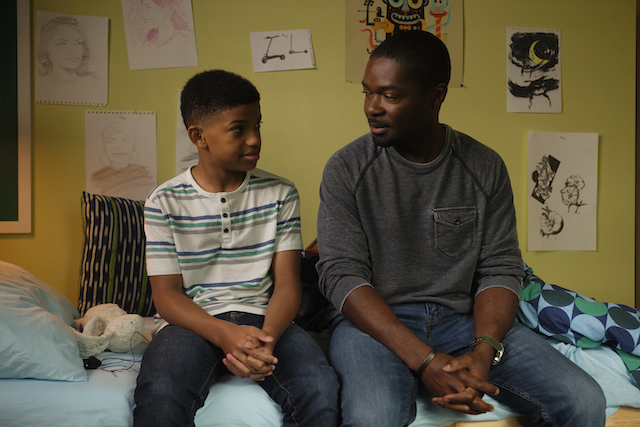
What kind of unexpected difficulties did you face as a first-time director doing a feature film? Did it go easier than expected or were there any shocking things? I imagine there are some challenges that come with starring in a film also directing it.
Yeah. There are very real challenges and the one that I was most nervous about was whether I would be so distracted with everything else. A director has to bear in mind that my performance might end up being one of the weakest things about the movie. I have spent a lot of my career intentionally watching some of these great directors I’ve had the privilege of working with. [Seeing what] they been doing what they do so brilliantly, and they have sort of been my film school in a way.
So there were definitely times in the middle of directing or even prepping to direct The Water Man where I actually realized I knew more than I thought I did, but also there were times when I had to really lean on the expertise of the brilliant crew I had built around me to sort of help me through my weaker spots. Those spots that maybe I hadn’t had as much insight into. The Water Man is actually the sixth film I produced, but I haven’t necessarily really dug into VFX myself in terms of how to make them work for a movie. You know, I haven’t necessarily been in all of the minutiae of a post-production process before. So, you know, these are some of the things I had to sort of learn in real-time.
Your performance is great in the film. What I liked about it was your character is real and he’s not like this cookie-cutter perfect father. He has his faults and the scenario he’s in, he has so much stress and there’s a bit of a disconnect with his child because they don’t share the same interests. You see some flaws, but he has such a good heart and he’s willing to do whatever for his child. Were you able to draw from your own experience as a father for that role?
Yeah, absolutely. I mean, that’s why I wanted to do it. I was able to identify not just the father role because I’m now a dad, but I also really identified with Gunner. As a child who growing up would’ve done anything for my parents because of how much I love them and because of how much they love me. I also think that the central theme of the film, which in many ways is sacrificial love, and seeing that acted out and embodied by this 11-year-old, is I think human being’s greatest attributes. I just loved seeing that through the eyes of an 11-year-old. I think it’s a true sort of hero’s journey for him, and that’s something that I think is aspirational. I think to see this family where love is the driving force for them overcoming some of these obstacles is also inspirational.
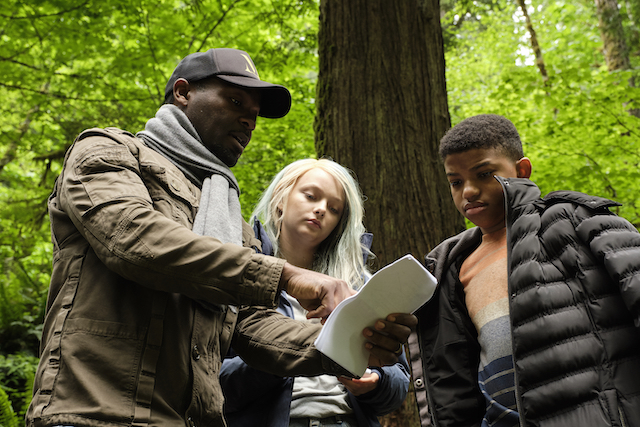
You have such an incredible young cast in the film. Can you speak to working with Lonnie Chavis and Amiah Miller and the relationship you had on set?
Talk about finding not just one, but two needles in a haystack. I mean, such brilliant young performers who really made me look good. I would love to take credit for the totality of their performances, but some of what they do in this movie is just stuff you can’t teach. A level of emotional intelligence, a level of sort of high IQ when it comes to dealing with a trickier theme than an 11-year-old and a 13-year-old should so adeptly be able to handle. They are both able to be kids, who are absolutely age-appropriate in their performances, but they are also able to entertain themes that you could argue are more grown-up. We need that in these kids because we are going to be oscillating between how they are being affected by these tougher things in the film and then how the grown-ups in the shape of myself and Rosario Dawson, as the parents together dealing with those things as well. So, I was just beyond impressed by both Linnie and Amiah.
Oprah Winfrey, who you’ve previously worked with, executive produced this. Can you discuss how she came to be involved in the project?
She and I met during The Butler. We obviously did Selma together as well. That was one of the first times where she came on by the project largely in support of me. That has been wonderfully a big part of our friendship of our relationship. She’s kind of a mother figure to me, as well. I went to her with this just saying it was something that I was very passionate about. I wanted to do, and she just wanted to support me in any and every way she could. One of the greatest contributions she made, obviously lending her company Harpo Films to the film and her wonderful executive in the shape of Carla Gardini. But also she has, my goodness, you want me to talk about a human being who knows about the human condition. That’s a great pair of eyes to have on a film of this nature, especially when you have early cuts that you’re hoping to get feedback on, and she does that. She’s incredibly useful from that point of view.
The Water Man spends a lot of time talking about death and trying to fight that inevitability, but by the end, it’s really a film about celebrating life. What do you hope viewers take away from it?
Exactly that. I think to celebrate life rather than bemoan how finite it is. In this film, we see a kid who’s desperately trying to reverse time and reverse what is a very difficult impending loss for him. It’s completely understandable, but at the end of the day, the reality is, and especially now we know in the wake of the pandemic, we are not promised tomorrow. We don’t know what the future holds. And so, the thing to really spend our energy and time doing is loving those we love and loving them hard, and being present with them. Not taking them for granted because there’s so many things we can’t control, but one of the few things we can is loving those who are right there with us while they are with us.
